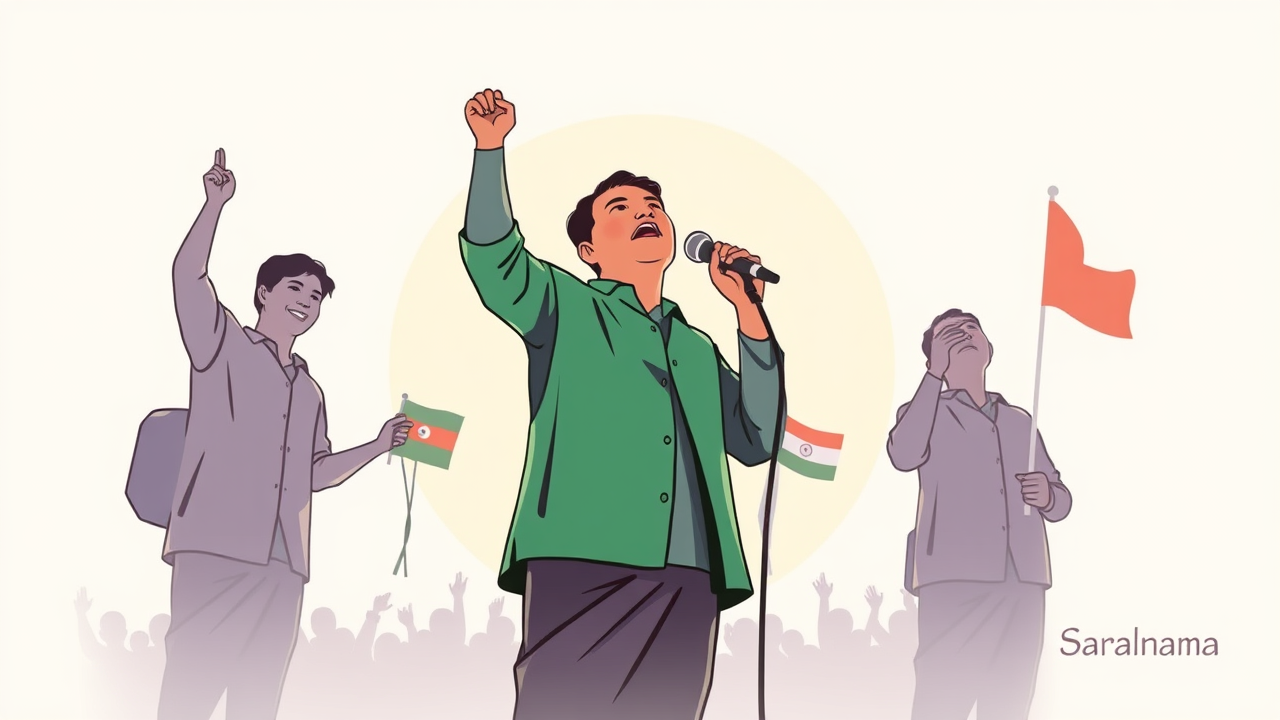A political controversy erupted in Assam after 74-year-old Bidhu Bhushan Das hummed two lines of Rabindranath Tagore's Amar Shonar Bangla at a Congress Seva Dal event in Sirbhumi district. Chief Minister Himanta Biswa Sarma accused the Congress of performing the national anthem of Bangladesh. The song, originally composed in 1905 as a protest against the British partition of Bengal, became Bangladesh's anthem in 1972. Tagore wrote it during the Swadeshi movement when Lord Curzon announced Bengal's division along religious lines into Muslim-majority east and Hindu-majority west. The decision sparked massive outrage and was reversed in 1911. While the anthem uses the first two stanzas celebrating Bengal's landscape, the original composition contained direct references to the boycott of foreign goods. Tagore himself later evolved his views on nationalism, particularly in his 1917 lecture series published as Nationalism. The incident highlights how a song written to call for Bengal's unity became the anthem of a nation born from its division, now sparking controversy in its birthplace.

From Protest Song to National Anthem
Tagore composed Amar Shonar Bangla in 1905 when British Viceroy Lord Curzon announced Bengal's partition, claiming it was too large for effective administration. The division aimed to create a Muslim-majority east and Hindu-majority west, sparking the Swadeshi movement among Calcutta's Hindus who viewed it as an attempt to divide Bengali speakers. The song begins as a romantic celebration of Bengal's landscape, with lines about golden skies, mango groves, and fragrant air. However, later verses reference the pain of partition and the boycott of foreign goods symbolized as a hanging rope disguised as a crown. Only the first two celebratory stanzas became Bangladesh's anthem in 1972, stripping away the more political elements of Tagore's original composition.
Tagore's Evolving Views on Nationalism
Between 1905 and 1908, Tagore wrote essays expressing doubts about the Swadeshi approach, realizing that boycotting foreign goods was insufficient. He advocated for a constructive programme of self-empowerment. His critique of nationalism reached full expression in his 1916 novel Ghare Baire and his 1917 lecture series published as Nationalism. Tagore argued that nationalism as an anti-colonial project mirrored the worst aspects of European political thought, making it an imitation of the forces it sought to resist. Scholars note his early Bengali nationalism reflected 19th-century romantic nationalism focused on cultural pride and humanism, similar to the Brothers Grimm and W B Yeats. Ironically, a song written to unite Bengal became the anthem of a nation born from its division.
Source: Link
